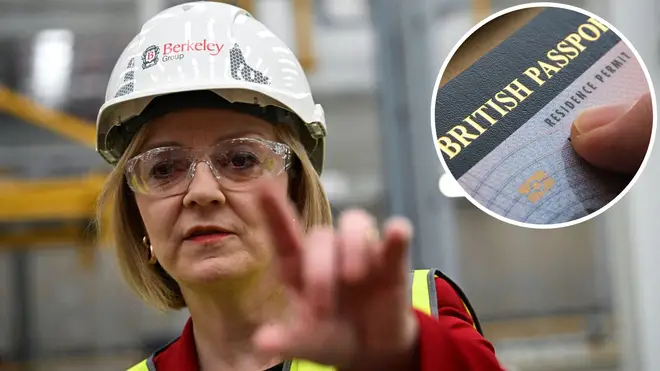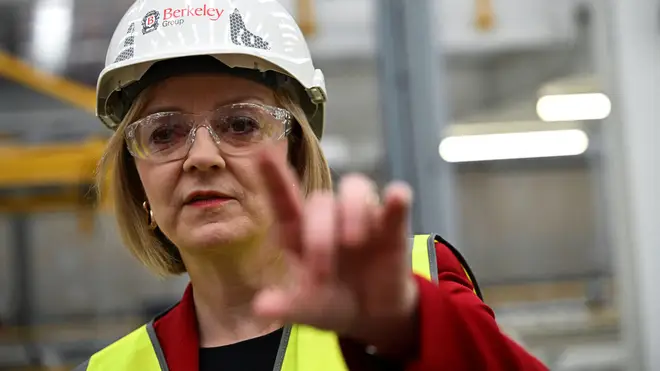
Iain Dale 7pm - 10pm
25 September 2022, 14:05

Liz Truss is pushing to boost immigration to ease shortages of workers.
She is reported to be aiming to reform the visa system and raise the cap on seasonal agricultural workers, as well as update the shortage occupations list, to boost recruitment of foreign talent.
But she could face challenges from her new home secretary, Suella Braverman, and trade secretary, Kemi Badenoch – with a senior source in Government saying that Brexit voters wanted to see migration brought under control.
The Times reports that Ms Truss has spoken about wanting to recruit broadband engineers from abroad so they can help fulfil a Government promise to ensure 85% of homes have access to full-fibre broadband.
She could also ease the requirements on English speaking in some sectors to boost recruitment, and ministers have discussed proposals for a new visa that would allow workers from one of the top 50 or top 100 universities in the world to move to the UK.

Kwasi Kwarteng, the chancellor, said on Friday that a new plan will be unveiled within weeks that would keep control of migration but allow for economic growth.
A senior source in Government said: "There is a view within the Treasury that migration is good for growth.
"That is a view that appears to be shared by the PM and the chancellor. We cannot tear up our immigration rules. People who voted for Brexit want to see controlled migration."
Read more: 'Scandals, too much Matt Hancock and even tractor porn': Rayner says 'enough is enough' to Tories
Any move to change migration rules could see increases of foreign workers in some sectors but decreases in others.
A senior Whitehall source said: "Businesses have been frustrated that the visa system, notably skilled work, has not been sufficiently responsive to specific shortages they have been facing. For example, the shortage occupation list that is part of the skilled worker visa has not been updated."
It follows the mini-budget on Friday, which generated criticism it was too beneficial to the rich and cut too much of Government revenue.
The Government says it will promote growth.
The key measures announced on Friday:
• Income tax: Basic rate will be cut by 1p to 19p and the 45p rate for top earners will be abolished from April 2023
• Stamp duty: The threshold for paying stamp duty was doubled to £250,000 - and for first time buyers it's been upped to £425,000
• Corporation tax: Planned rise from 19 to 25 per cent is scrapped
• National insurance: 1.25 per cent increase scrapped from November 6
• Bankers' bonuses: Cap axed
• Alcohol duty: Planned increase for beer, cider, wine and spirits all cancelled, coming into effect in February 2023